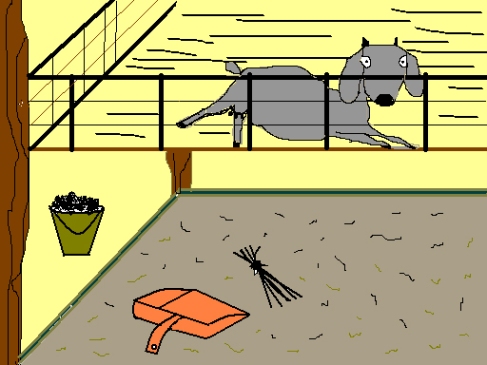“No matter how many white swans you have seen, it doesn’t tell you anything about the possibility of a black swan”
Nassim Nicholas Taleb, Philosopher and Expert on Risk
In a celebrated dialogue between Fr.Copleston and Bertrand Russel, the latter is posed with a question as to what question he would throw at God if he chanced upon him. Russell quipped: “I will ask God why he hasn’t left anything in the world to prove his presence.” The Vedas had it that “Isōvāsyam idam sarvam”(Everything is the abode of God). In a crude way Thales spoke of everything being full of gods, thus sowing the seeds of hylozoism and pantheistic trends in the western thought. In Indian tradition one comes across the supposedly contrasting worldviews of acosmism and cosmism; these are nevertheless the same thing viewed from two different ends: from eternity and from temporality. A similar strain of thought is shared by the Stoics in their formulation of sub specie temporis and sub specie aeternitatis upholding that everything is essentially good even when it appears the contrary. Tertullian went a step further in claiming that anima naturaliter Christiana( soul is naturally Christian). The aforesaid representations point to the fact that some sort of regularity had been observed in the dynamics of the universe which are variedly ascribed to the physical, preternatural or spiritual forces.
A law or rule of action is seen as implicit in the very nature of things. This, we call, the natural law. It also designates laws that regulate the activities of nature both in organic and inorganic realms. All creatures have from their creator those determined natural inclinations to their own respective ends “which we say are natural laws”, comments St.Thomas; elsewhere he has spoken “natural law is nothing other than the participation of eternal law in rational creatures”. Not only in classical and scholastic philosophy but also in modern science one finds that natural law is deemed to have an ontological value. This is a realistic view. Various contemporary thinkers hold that scientific knowledge is assimilated as a passive representation and faithful mirror of reality.
Plato speaks of Euthyphro Dilemma: whether something is good because God loves it or God loves it because it is good. This is a moot point in moral philosophy. One can view the beauty and order as a consequence of its ordination by God or one can speak of God as an abstract representation of the beauty and goodness one finds in the world, something like a provisional subject. Are there natural laws? Science has no knowledge on things that cannot be observed. Its validity depends on the conformity of the individual observations to a hypothesis.
Consider the proposition “All crows are black” and its contrapositive “All non-blacks are non-crows.” Each time we see a black crow our supposition is proved but given that each of the above two propositions can be immediately followed from the other, why is it that a pair of white shoes (which is non-black and non-crow) does not validate the supposition that all crows are black? There is something predictable about the physical laws; in that respect how much does it contribute to the definability of God? This is under the assumption that God wills the physical laws to be unchangeable so that every time you throw a stone up it inevitably comes down. Suppose if there is a miracle or an aberration, then it too is natural in that it occurred in the natural sphere. Only thing we may conclude is that the exception was so far not recorded.
Duns Scotus said that God in His willing is “intelligissime et ordinatissime volens” (most intelligent and most orderly) and that He is not arbitrary. If natural laws are participation in this eternal wisdom why it seems that much of the occurrences in life appears as matters of chance or like game of dice. Natural law ought to orient us towards the natural end as the case maybe. The facticities (things which are beyond one’s control) of life set each individual in a different starting point and he is to grow upon that. How can one conceive a common denominator for the different individuals and speak of it as the natural end of that life. When the pronouncements about each man’s end are as varied as there are individuals how can we speak of a “law”? The universality of the “law” is at stake. It takes us back to the Orwellian paradox: “All men are equal, but some are more equal than others”. If you try to educate somebody about the aim of his life, then it’s just trying to conform him to a consensus and it stops to be natural and spontaneous. If one’s destiny depends on the formative force of his circumstances then it is not equal for all. Natural laws, if any should be applicable or accessible to all equally. This leads us to the nominalist position that there can’t be such a thing as universal and that there are only individuals.
If we are pawns in the hands of God then there is no point in speaking of our actions as bound to natural laws, because God is not part of our nature in the sense God is part of God’s nature. This leads to arbitrariness in human actions as we witness in the present sociopolitical context. Each action is targeted not on a blind abyss but on immediately fruitful results. Here appetites grow higher than the intellections. Every human action becomes hesitant or determined according to the viability of the situation with utter disregard for the “natural laws”. A jihadist has sound theology for his outrages, an imperialist wages war in the name of God. This is because God is no more thought to be abstract but as a concretization of one’s own personal whims and fancies. Therefore god’s revelations become unmediated and very often my god draws the sword at your god. Then why wonder that the world has become self-centered and each one nothing but a juggernaut.


 As I
was spending few months in Arunachal Pradesh, I could rather understand how
grim a situation is the dearth of water. The indigenous people used long poles
of bamboo as water ducts, drawing water from springs deep in the forests. The
too dry up and once again they venture into dense jungles to locate a new
spring. The thirst never ends.
As I
was spending few months in Arunachal Pradesh, I could rather understand how
grim a situation is the dearth of water. The indigenous people used long poles
of bamboo as water ducts, drawing water from springs deep in the forests. The
too dry up and once again they venture into dense jungles to locate a new
spring. The thirst never ends.





